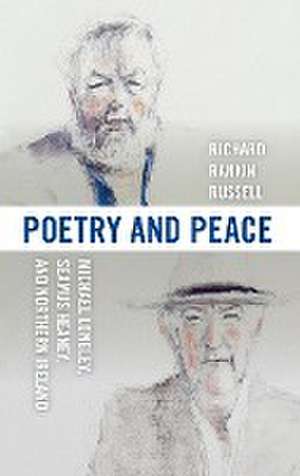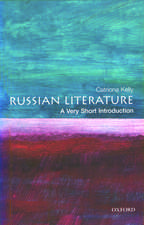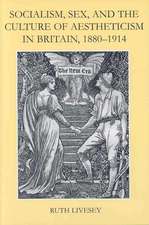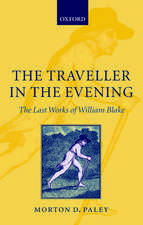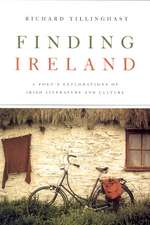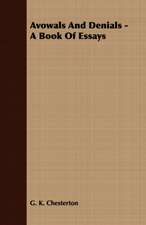Poetry and Peace – Michael Longley, Seamus Heaney, and Northern Ireland
Autor Richard Rankin Russellen Limba Engleză Hardback – 29 sep 2022
| Toate formatele și edițiile | Preț | Express |
|---|---|---|
| Paperback (1) | 312.71 lei 3-5 săpt. | +27.17 lei 7-13 zile |
| MR – University of Notre Dame Press – 14 noi 2010 | 312.71 lei 3-5 săpt. | +27.17 lei 7-13 zile |
| Hardback (1) | 833.74 lei 6-8 săpt. | |
| MR – University of Notre Dame Press – 29 sep 2022 | 833.74 lei 6-8 săpt. |
Preț: 833.74 lei
Preț vechi: 1142.11 lei
-27% Nou
Puncte Express: 1251
Preț estimativ în valută:
159.54€ • 166.91$ • 132.53£
159.54€ • 166.91$ • 132.53£
Carte tipărită la comandă
Livrare economică 02-16 aprilie
Preluare comenzi: 021 569.72.76
Specificații
ISBN-13: 9780268206673
ISBN-10: 0268206678
Pagini: 404
Dimensiuni: 158 x 235 x 28 mm
Greutate: 0.71 kg
Editura: MR – University of Notre Dame Press
ISBN-10: 0268206678
Pagini: 404
Dimensiuni: 158 x 235 x 28 mm
Greutate: 0.71 kg
Editura: MR – University of Notre Dame Press
Notă biografică
Descriere scurtă
Recenzii
“Richard Rankin Russell’s Poetry and Peace represents the best of the second wave of Heaney criticism and the rising tide of Longley criticism. . . . As a result of his far-reaching and adept research, insightful and informed analysis, and progressive thesis, Russell’s work is more than an excellent introduction to Longley’s poetry; it marks a new day in Longley studies. Sharing the beautifully illustrated and finely produced cover of Poetry and Peace with Seamus Heaney brings a well-deserved, but long-in-coming, recognition to Longley's work on and off the page. There is a clarity of purpose and coolness of execution that makes Poetry and Peace a very convincing book, a very approachable book, and a very important book. . . ." —James Joyce Literary Supplement
“Russell’s book is valuable in giving full attention to the work of Michael Longley, a poet of great range and variety who has been unjustly overlooked in some quarters. The book is additionally valuable in the way it takes poetry out of the ontologically abstract place it is assigned to by most literary criticism.” —The New Criterion
